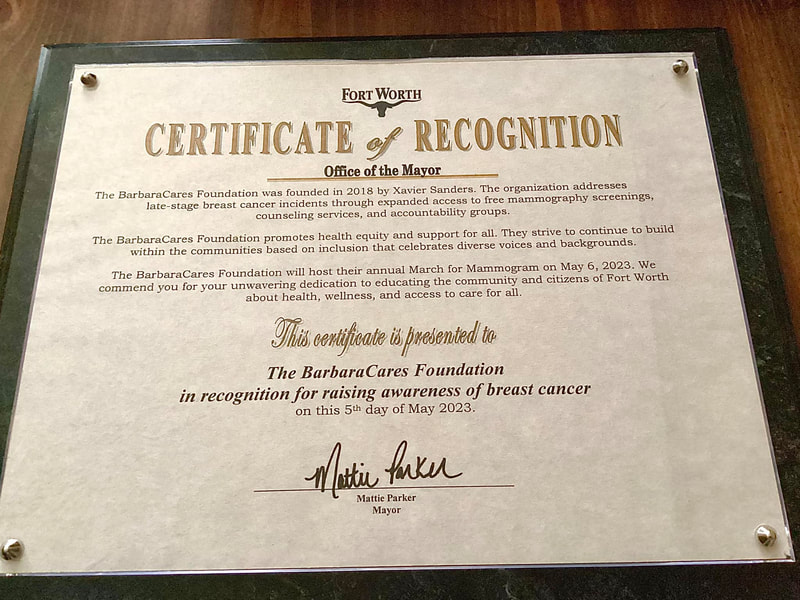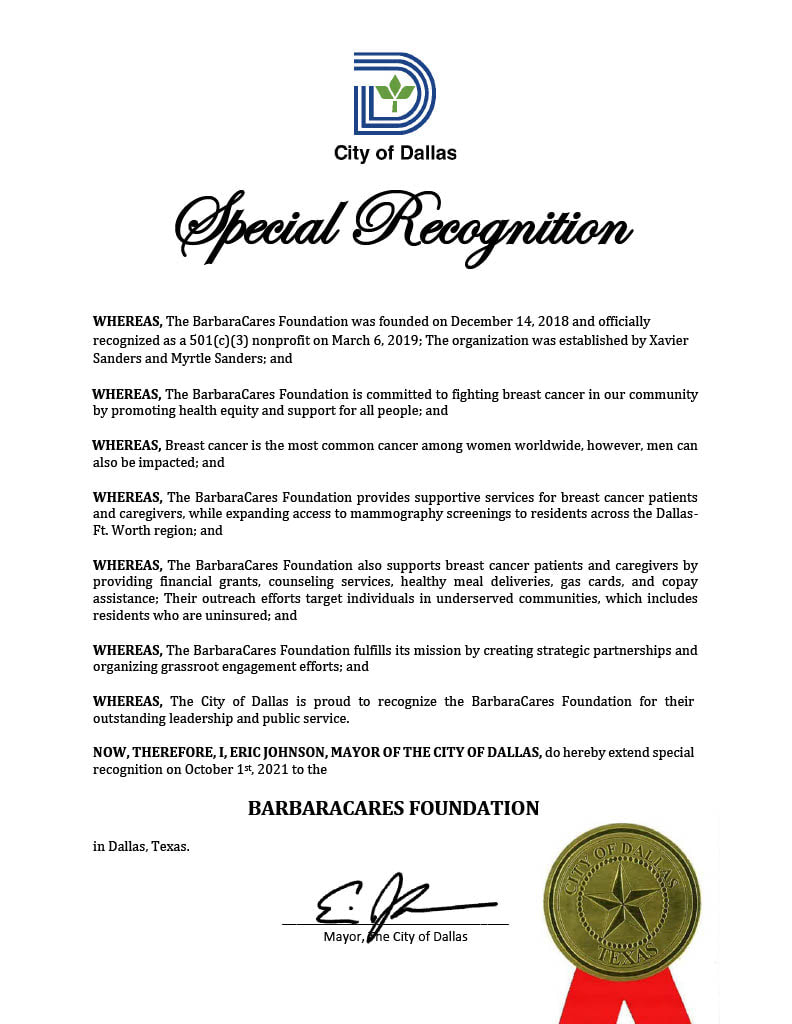The BarbaraCares Foundation would like to provide accurate updated information as it becomes available to help those in active treatment and caregivers providing care for loved ones. As we all try to navigate the unknowns of this ongoing pandemic, rest assured of our commitment to be an advocate and voice to ensure public health remains a priority. Please check periodically for the most current and up-to-date information. Stay safe. Stay healthy!
Q & A : Breast Cancer and COVID-19 Vaccinations
- 1) Are there any cautions for those in active treatment taking chemo/radiation?
- Immunocompromised individuals may still receive COVID-19 vaccination if they have no contraindications to vaccination. However, they should be counseled about the unknown vaccine safety profile and effectiveness in immunocompromised populations; the potential for reduced immune responses; need to continue to follow all current guidance to protect themselves against COVID-19.
- Either of the currently authorized mRNA COVID-19 vaccines can be used when indicated; the Advisory Committee on Immunization Practices (ACIP) does not state a product preference. For persons who were vaccinated for COVID-19 while they were undergoing chemotherapy or treatment with other immunosuppressive drugs and who have since regained their immune competence, re-vaccination is not recommended at this time. Recommendations on re-vaccination or additional doses of mRNA COVID-19 vaccines may be updated as additional information is available.
- 2) Is the vaccine safe for those that have completed treatments?
- Yes. See above
- 3) There seems to be a lot of people now getting the Moderna vaccine opposed to the Pfizer vaccine, is there any particular reason?
- Moderna has easier handling and storage requirements than Pfizer which requires a temperature of -70 degrees Celsius to store vs -20 degrees Celsius for Moderna
- 4) Are there any studies suggesting variations of efficacy on cancer patients?
- Not at this time, but trials are ongoing.
- 5) Are side effects significantly increased for those with compromised immune systems?
- Immunocompromised individuals may still receive COVID-19 vaccination if they have no contraindications to vaccination. However, they should be counseled about the unknown vaccine safety profile and effectiveness in immunocompromised populations; the potential for reduced immune responses; need to continue to follow all current guidance to protect themselves against COVID-19.
- Either of the currently authorized mRNA COVID-19 vaccines can be used when indicated; the Advisory Committee on Immunization Practices (ACIP) does not state a product preference. For persons who were vaccinated for COVID-19 while they were undergoing chemotherapy or treatment with other immunosuppressive drugs and who have since regained their immune competence, re-vaccination is not recommended at this time. Recommendations on re-vaccination or additional doses of mRNA COVID-19 vaccines may be updated as additional information is available.
- 6) For communities of color, what words of calm can be used to increase the trust of this vaccine.
- The pain and mistrust created in the name of public health in years past is significant and undeniable. In this case, the best reassurance that the vaccine is good for everyone is to look at who wants to receive the vaccine, the health care workers… doctors, nurses, EMTs, paramedics and supporting staff.




